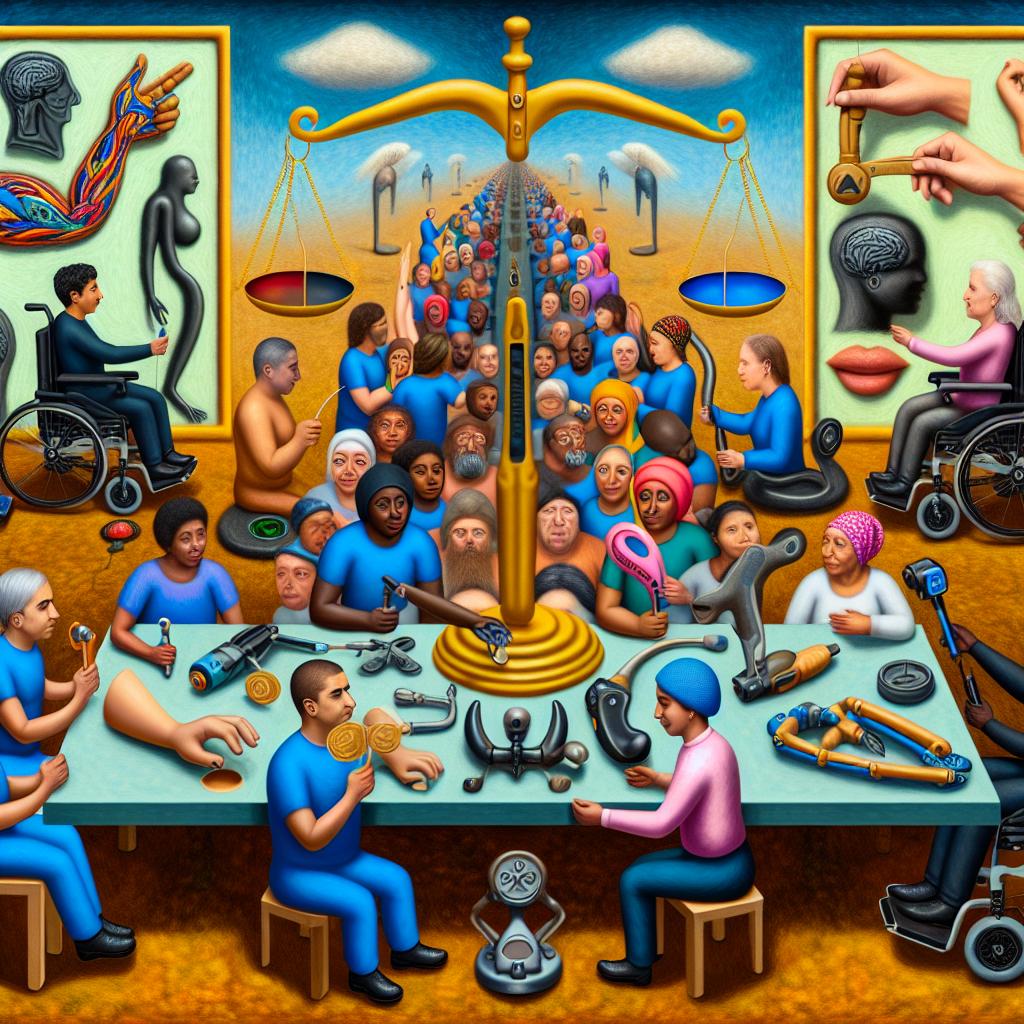The Ethics of Assistive Technology Development
The landscape of assistive technology is evolving at a remarkable pace, delivering pivotal advantages to individuals with disabilities and enhancing their quality of life. However, this rapid advancement is not without its complex ethical challenges. The foundation of ethical development in this sector requires careful consideration of numerous factors to ensure that emerging technologies are not only effective but also equitable and fair.
Ensuring Accessibility and Inclusivity
A fundamental aspect of the ethical discourse in the development of assistive technologies is the imperative of accessibility and inclusivity. Ensuring that these technologies serve a diverse range of individuals is critical. Inclusivity starts at the design stage, where developers must consider the broad spectrum of disabilities. This involves creating user-friendly interfaces and ensuring adaptability to meet various needs and preferences. Economic factors also play a crucial role in accessibility. It is important for designers and manufacturers to consider the socio-economic diversity of potential users. By providing adaptable financial solutions or scalable product versions, developers can broaden accessibility and ensure that no group is marginalized or overlooked.
Privacy and Data Security
The deployment of assistive technologies brings to the forefront significant concerns regarding privacy and data security. As most modern assistive devices require the collection and processing of data, particularly sensitive health information, safeguarding this data becomes paramount. Developers must adhere to stringent privacy policies and implement advanced security measures to protect users against data breaches and misuse. It is vital for technology providers to align their data protection protocols with both local and international standards, creating systems that respect user confidentiality. Educating users about data privacy policies and obtaining explicit consent are critical steps in building trust with users and ensuring ethical compliance.
Affordability and Fair Distribution
Another ethical cornerstone in assistive technology is affordability. Cost should not be an impediment to accessing essential technologies. An ethical approach necessitates designing products that are not only innovative but also economically accessible to various socio-economic groups. Fair distribution plays an equally vital role, emphasizing the need for equitable access across different demographics and regions. It is necessary for policymakers and developers to work collaboratively to identify disparities in access and address them through inclusive policies and subsidies. This way, the benefits of assistive technology can be universally realized.
Informed Consent
In the realm of assistive technology, obtaining informed consent is an ethical imperative, especially when dealing with personal data collection. Users should have a clear understanding of the data types collected, the purposes for which the data is used, and any third parties with whom the data might be shared. Transparent communication empowers users to make informed decisions about their engagement with technology. This awareness is not only fundamental for upholding individual autonomy but also crucial in fostering a trustworthy relationship between consumers and technology providers.
Responsibility for Unintended Consequences
The responsibility to address unintended consequences rests with the developers and stakeholders. As technologies advance, unexpected issues can arise that may not have been initially apparent. Developers have a duty to monitor these technologies continuously and be prepared to remedy any unintended negative impacts quickly. This includes being aware of potential dependencies that could develop, limiting users’ ability to perform certain tasks without the technology. Ethical responsibility involves ensuring that technology remains an enabler and does not become a limiter over time.
The Role of Stakeholders
The ethical development of assistive technologies relies on the involvement of multiple stakeholders, including engineers, healthcare providers, policymakers, and end-users. Each stakeholder brings unique perspectives and expertise, contributing to a more comprehensive understanding of user needs and potential ethical challenges. Collaboration among these groups is essential to balance technological innovation with ethical principles. By engaging in continuous dialogue and feedback, stakeholders can anticipate ethical dilemmas and design technologies that align with both user requirements and ethical standards.
Conclusion
Assistive technology promises to significantly improve the daily lives of individuals with disabilities. However, realizing this potential necessitates careful navigation of its ethical dimensions. Ensuring accessibility, privacy, affordability, and addressing the implications of unintended consequences are central to the ethical framework guiding these technologies. It is the shared responsibility of developers, policymakers, and other stakeholders to commit to ethical practices that ensure assistive technologies are developed and distributed in a manner that is fair, equitable, and mindful of the users’ rights and needs. As this field continues to grow, upholding these ethical principles will be essential in enabling assistive technologies to reach their fullest potential, offering genuine, inclusive advancements for all users.
